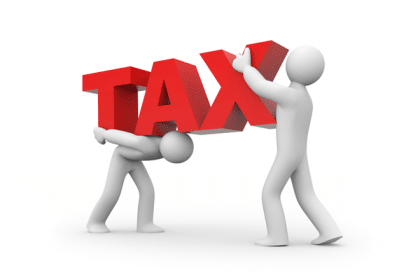20 Ways to Keep the Tax Demon Down!

There are two inescapable things we all have to face in our lives; first one is fate and the second one, the more unavoidable one, the taxes! From time to time new strategies are rolled out to maximise tax benefits according to changing market scenarios and tax policies. Some businesses go all the way to save as much as they can on the seemingly unpleasant compulsion called taxes. But do you really need to change the way you operate to make the most of tax benefits? Experts say otherwise. Taxation is wide and at times a complicated aspect of business and you stand to benefit a lot if you have the right advice at hand. While there is no legal solution to avoid taxes, there are a few things which you can do in order to minimise your liabilities.
- Are you eligible for Entrepreneur’s Tax Offset? – Earning less can actually help you because in case your turnover is not more than $75,000 this year, you can lay claim on 25% of the tax payable. This Entrepreneur’s tax offset is particularly helpful for small businesses or for those who have just started their journeys in the market.
Eligibility – You should be single with household income less than $120,000 or personal income below $75,000.
- Operating as a Company vs. Operating as an Individual – You need to analyse your business structure in order to figure out whether you should operate your business as a company or a trust or as an individual. Operating as a company definitely gives you certain commercial benefits but operating as an individual can be a lot cheaper. If the company tax rate of 30% sounds a little too unpleasant, opt to operate as an individual instead.
- Stay away from ‘Company Loans’ which are disguised as ‘Dividends’ – The practice of extracting money out of your company and labelling it as company loans, when in reality the money is a dividend, can land you in trouble. Clean up these loans or else you will end up paying maximum tax with zero imputation benefits.
- Sort out the Inter-Company Agreements – The ATO pays a lot of attention in making sure that the companies are doing it right, as far as documentation for inter-company agreements is concerned. You will have put all the right steps in this direction to avoid trouble. For example, if the administrative functions of 2 or more companies are shared at a common back office so that these companies can effectively manipulate their tax profits, they will need to prove that these agreements are legitimate.
- It’s time to examine your ‘Trust Deeds’ – You need to take care of those discretionary trusts associated with your name. Meet the essential requirements of the deed in declaring distributions. Make sure that the trust has not passed its vesting date and also ensure that the appointer of your trust is still the right guy for that job.
- Small Business CGT Concessions – These special considerations have been especially kind to small businesses over the last few years. You can claim as many as 13 different types of concessions every year. If your business assets are sold after being held for more than 15 years and the legitimate owner of the company is more than 55 years old, the company is eligible to claim its CGT free status.
- Let go off the Bad Debts, right away – Do not wait any further, bad debts needs to be reviewed immediately. There is no point in carrying the extra burden to the next year if you are sure they’ll never turn good, write them off your books now.
- Mean Machines – It is time you realised that car can be used for more than just travelling. You can claim tax deductions if you travel in a work related motor vehicle. You can claim these deductions in three ways –
- If your claim is for less than 5000 km you can employ the cents per kilometre method.
- If you have a habit of maintaining a log book for odometer readings and you also have the receipts, claim your deductions for running expenses.
- If the claim is for more than 5000 km, you might be able to recover one third of the actual car expenses.
- Make a list of the Up-coming Costs – Enlist all the possible up-coming expenses such as compensation, insurance premium instalments for unpaid workers, short term consumables including office supplies and stationary items, shareholder loans which are to be repaid, etc.
- Review the Salary Packages – Observe if your company’s salary packages are still effective enough. Employees earning in excess of $180,000 are the only ones who get benefitted from salary packaging because of the increase in tax brackets.
- Pay Superannuation Contributions – Did you forget about paying superannuation contributions? Pay in time and you can still claim them as deductions without any hassles.
- Work Related Deductions – You can claim deductions worth $300 without showing receipts as proof. Besides these deductions, there are many other work related deductions which you can claim –
- You can claim up to $150 in eligible laundry claims.
- Working at home doesn’t mean you are at loss. Home workers can claim deductions for lighting, heating and cooling office equipment or professional library given that they have maintained a record of the hours they have worked at home for at least four weeks.
- If you are studying to get better at the job, claim deductions.
- Non-Work Related Deductions – These include, bill paid to a tax agent for preparing your tax return, fees paid to a financial planner, bank charges, internet payments on borrowed funds and donations to charities or union membership fees. Who says charity doesn’t pay?
- Hey! I used my own Tool – There are cases when equipment or an item helps you in earning considerable income besides your business income. You can claim deductions for that piece of equipment as well.
- Take note of rental property – You can claim deduction for the expenses on your property but only while the property is up for rent or is already rented. So make a note while you spend gardening, land tax, insurance, agent fees, water charges, pest control and even advertising. Keep digging and find out what else you can get a deduction on.
- Keep the CGT low – While assessing the value of assets, do not forget to include all costs of acquiring them like stamp duty, advertising and commission fees. You can really push the CGT down by reporting relevant expenses, but do it in a fair manner, as the authorities are keeping a watchful eye.
- Keep something for yourself – If you are self-employed, make less than 10% of what you earn from another business or job and if you are below 75 years of age, you can make superannuation contribution to self. These tax deductible contributions can come in handy when things are not so bright.





